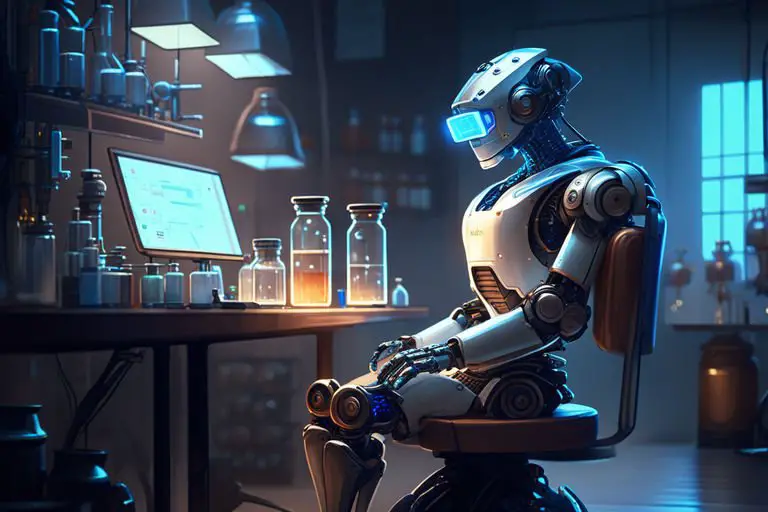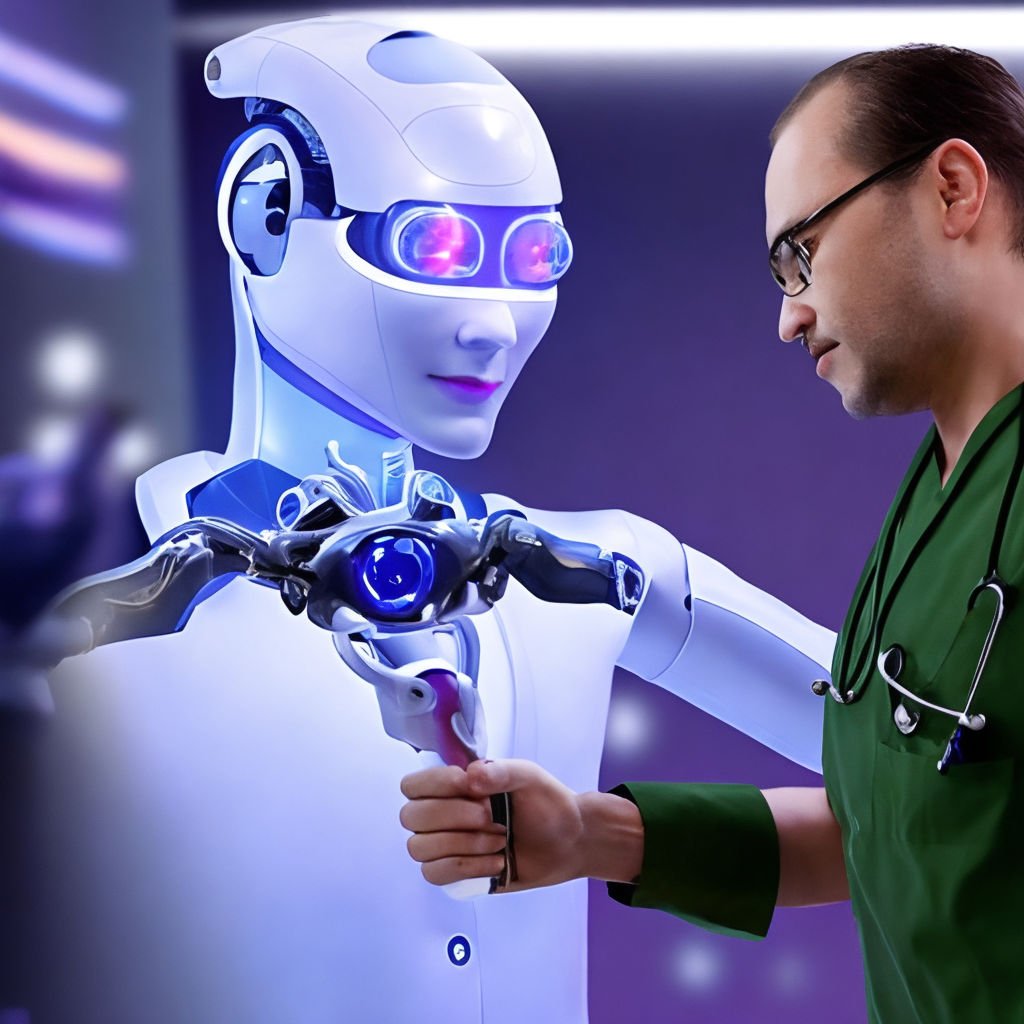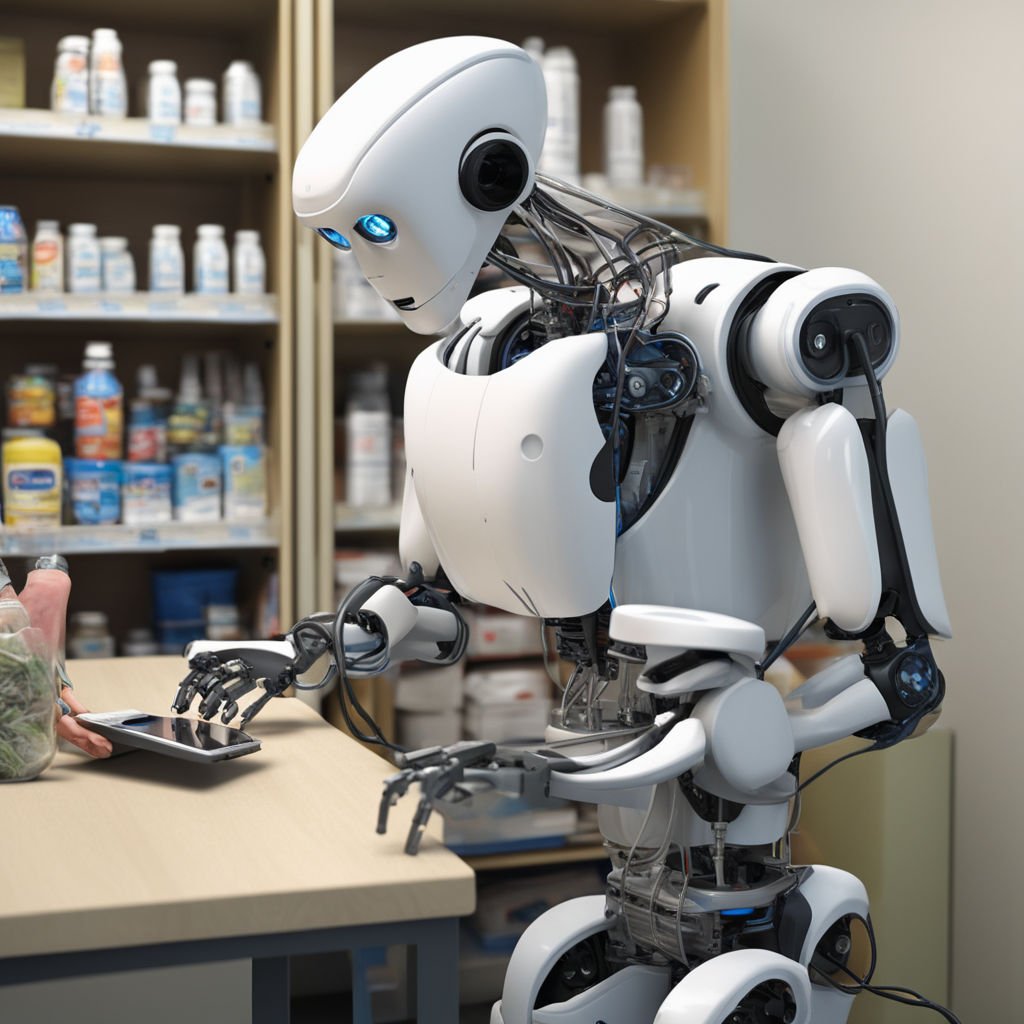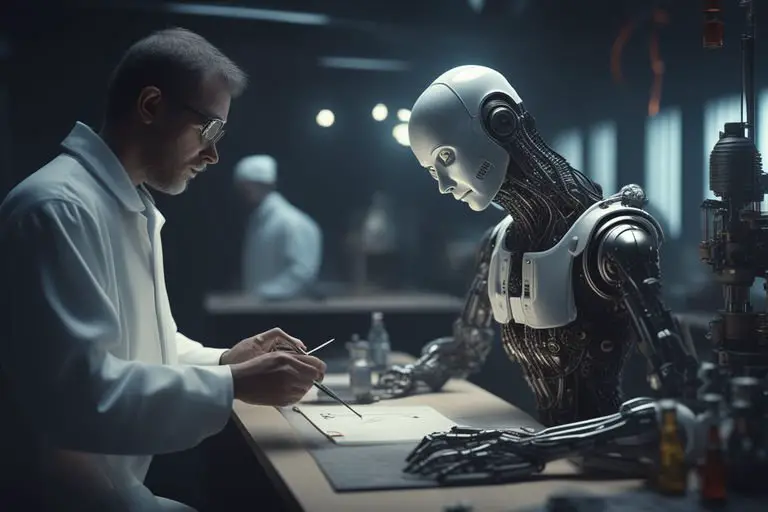Biotechnology:

The landscape of biotechnology is experiencing a seismic shift, driven by the transformative power of artificial intelligence (AI). This potent technology is quickly reshaping the field, offering unprecedented opportunities for discovery, innovation, and personalised healthcare solutions. From accelerating drug development to unlocking the secrets of the human genome, AI is set to revolutionise the way we approach healthcare and push the boundaries of human health and well-being.
Exploring the Basics: AI and Biotechnology
Artificial Intelligence (AI): AI includes the development of computer systems capable of performing tasks that typically require human intelligence. Machine learning, a subset of AI, allows these systems to learn from and adapt to data, making them useful tools for complex problem-solving and decision-making.
Biotechnology: Biotechnology harnesses biological processes, organisms, or systems to make technologies and products that help society. It includes a wide range of applications, from genetic engineering and molecular biology to the development of pharmaceuticals and medical devices.
Impact of AI-Powered Biotechnology: Drug Discovery and Accelerated Screening Processes

AI expedites drug discovery by analysing vast datasets to find potential drug candidates. Machine learning models can predict the effectiveness of compounds, significantly reducing the time and resources needed for initial screening processes.
Targeted Drug Design: AI allows for the exact design of drugs tailored to individual patients. By analysing genomic and molecular data, AI finds specific biological markers, allowing the development of personalised therapies with enhanced efficacy and reduced side effects.
Optimisation of Clinical Trials: Machine learning algorithms optimise clinical trial processes by finding suitable patient cohorts, predicting potential risks, and enhancing patient recruitment strategies. This results in more efficient and cost-effective trials, accelerating the total drug development timeline.
Read More: How Quantum AI Will Cure Diseases Faster
Revolutionising Precision Medicine with AI-Powered Biotechnology
Genomic Sequencing: AI plays a pivotal role in the analysis of genomic data, giving insights into an individual’s genetic makeup. This information is crucial for identifying genetic mutations, predicting disease susceptibility, and tailoring treatment plans for precision medicine methods.
Predictive Diagnostics: Machine learning algorithms allow the early detection and prediction of diseases based on individual genetic profiles and biomarker data. This enables proactive healthcare interventions, allowing for timely and personalised treatment strategies.
Personalised Therapies: AI-driven advances in precision medicine lead to the development of personalised therapies. These treatments target specific genetic abnormalities, providing a more targeted and effective approach to disease management.
Exploring AI-Powered Biotechnology: AI in Bioinformatics

Data Integration and Analysis: Bioinformatics, at the intersection of biology and data science, gains from AI by efficiently integrating and analysing large-scale biological data. This aids researchers in extracting meaningful insights and patterns, adding to a deeper understanding of complex biological processes.
Protein Folding and Structure Prediction: AI algorithms are employed to predict protein folding and structure, a critical part of drug design and development. This accelerates the identification of potential drug targets and improves the efficiency of drug discovery processes.
Drug-Drug Interactions and Side Effect Prediction: Machine learning models analyse historical data to predict possible drug-drug interactions and side effects, mitigating risks in drug development. This ensures the safety and effectiveness of pharmaceutical interventions.
Read More: How AI and Quantum Computing Can Improve Logistics
A Real-World Look at AI in Biotechnology: Companies Making a Difference
The AI shift in biotechnology isn’t just theoretical. Here are some real-world cases showcasing its impact:
DeepMind’s AlphaFold protein folding programme: This AI tool predicts protein structures with unprecedented accuracy, aiding in the building of new drugs and vaccines.
Recursion Pharmaceuticals: This company uses AI to analyse patient data and find drug candidates for repurposing, accelerating drug discovery for rare and difficult diseases.
Grail: This company uses AI to analyse DNA sequencing data for early cancer detection, hoping to personalise cancer screening and improve patient outcomes.
Navigating the Challenges and the Ethical Landscape

While the potential benefits of AI in biotechnology are obvious, ethical considerations require careful attention.
Algorithmic bias: AI algorithms taught on prejudiced data can perpetuate discriminatory results in healthcare. Ensuring fairness and inclusivity in AI creation and deployment is important.
Privacy concerns: The use of personal health data causes privacy concerns. Robust data security measures and patient consent are important to protecting individual privacy.
Accessibility and equity: Unequal access to technology and healthcare tools could exacerbate existing disparities. Ensuring equitable access to AI-powered healthcare solutions is important.
Integration of AI into Clinical Practices: The seamless integration of AI tools into clinical practices requires overcoming regulatory hurdles, ensuring healthcare workers are properly trained, and fostering trust in AI-driven diagnostics and treatment plans.
Read More: How AI is Revolutionising the Job Market
Conclusion: Embracing the Future
The AI revolution in biotechnology marks a pivotal moment in the development of healthcare and life sciences. From expediting drug discovery to enabling personalised therapies, the synergy between AI and biotechnology is driving unprecedented advances. As we navigate this transformative era, addressing challenges and ethical considerations will be crucial to realising the full promise of AI in shaping the future of healthcare.
The AI revolution in biotechnology is not about replacing human knowledge; it’s about forging a strong partnership between human ingenuity and machine intelligence. By embracing this collaboration, we can unlock the full potential of AI to revolutionise healthcare, improve lives, and address some of the most pressing issues facing humanity.
In closing, the collaborative efforts of researchers, healthcare professionals, and policymakers are important in harnessing the power of AI to its fullest extent. Together, we pave the way for a future where AI-driven innovations in biotechnology lead to better patient outcomes, enhanced diagnostics, and a more personalised approach to healthcare.










